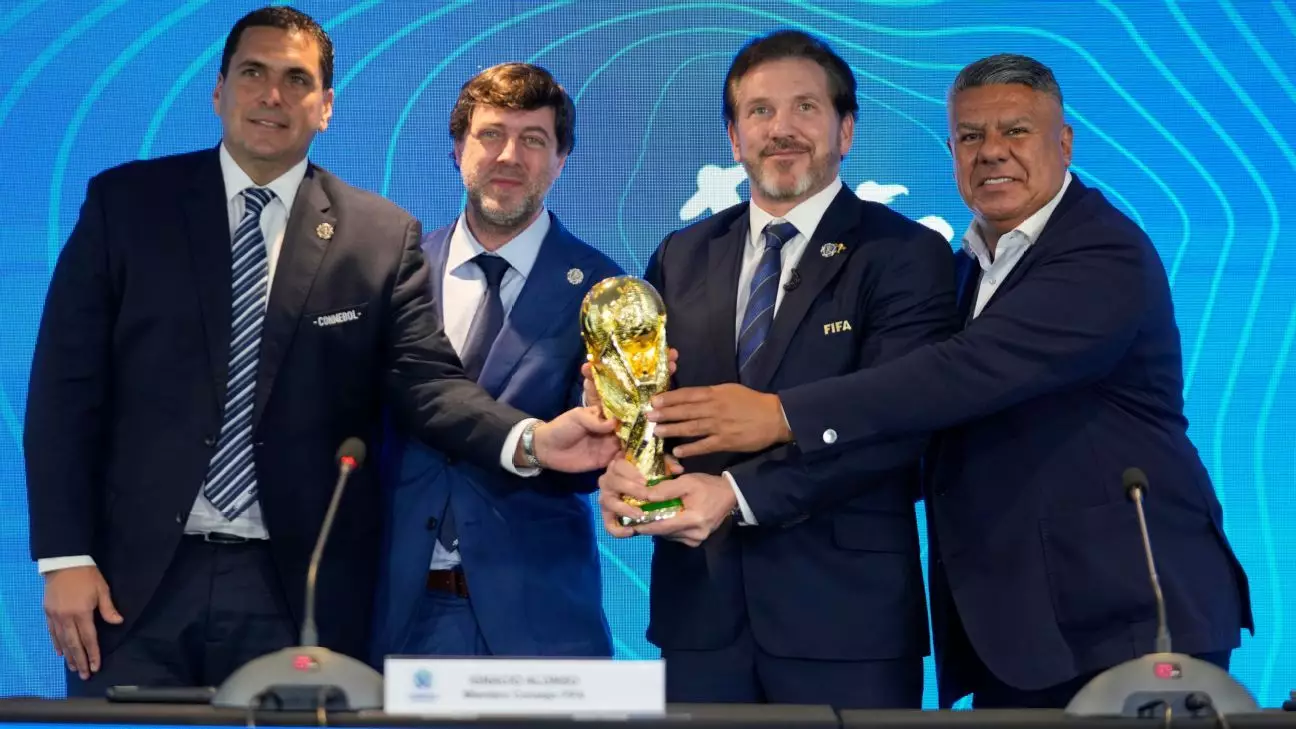The prospect of expanding the men’s FIFA World Cup from 48 to 64 teams has sparked significant debate among soccer officials and fans alike. Recently, UEFA President Aleksander Čeferin categorically rejected the proposal, stating it to be “a bad idea.” Stemming from a surprise suggestion during a FIFA council meeting, the notion of bringing more teams into the World Cup has gained traction, particularly among those focused on revenue generation like FIFA President Gianni Infantino. However, the enthusiasm for expansion raises serious questions regarding the integrity of the tournament.
Impact on Quality of Play
One of the most pressing concerns regarding a 64-team format is the potential dilution of game quality. Soccer is revered for its competitive edge and the high caliber of play exhibited by the world’s best teams. Expanding the number of participating teams could introduce weaker sides that fail to meet the established standards of the sport. Critics fear that the format could lead to a significantly subpar tournament, where the joy of watching elite players compete is overshadowed by mismatched games.
The proposed expansion would likely result in a sprawling 128-match schedule, a setup that not only raises logistical nightmares but also diminishes the value of the qualifying rounds. Under the current qualifying structure, teams battle it out for limited spots, ensuring that only the best rise to the occasion at the World Cup. A more extensive entry list threatens to undermine this competitive meritocracy.
Concerns Over Qualifying Integrity
The integrity of the qualifying process is another critical issue that arises from the expansion proposal. By introducing additional spots for the World Cup, many continental federations face the risk of devaluing their thorough qualification processes built around regional competitiveness. For instance, UEFA currently allows 16 entries in the upcoming World Cup, ensuring a level of rigor in how European nations earn their place on such a prestigious global stage. The addition of more teams will not only complicate this structure but could also lessen the thrill and significance of qualifying.
Čeferin further emphasized this sentiment by expressing skepticism about the origins of the proposal, questioning its intent and how it could stem from a prestigious soccer nation like Uruguay, which is set to host just one game in the upcoming tournament. The lack of transparency surrounding its genesis raises red flags about the broader implications of adopting such a significant change in an already highly complex World Cup framework.
Financial Considerations vs. Sport Integrity
FIFA’s push for expansion is rooted in financial incentives, a common theme in discussions about the future of major sports events. While economic considerations such as increased revenues and global development of soccer are important, they should not eclipse the core values that define the sport. Integrity, competition, and the thrill of witnessing world-class talent on display must remain paramount in discussions about the World Cup’s structure.
Moreover, Čeferin’s assertion that “it is not a good idea for the World Cup itself” poignantly highlights the growing chasm between financial motivations and the spirit of competition that underpins soccer. Before any final decisions are made regarding the expansion, it would be prudent for FIFA to weigh the potential ramifications carefully, valuing the long-standing traditions and competitive integrity of this celebrated tournament.
The push for a 64-team World Cup should prompt a deeper analysis of what the competition represents. With soccer’s global popularity at its zenith, the focus must remain on celebrating the game’s beauty through competitive spirit rather than merely chasing financial gains.

